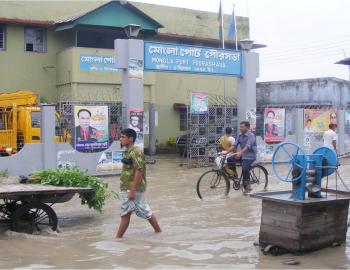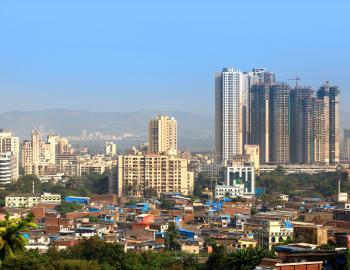POLICY BRIEF: Making Indian cities climate smart
POLICY BRIEF: Making Indian cities climate smart
This is part of a series of policy briefs by the British High Commission, New Delhi, on the work of the India-UK partnership on energy and green growth. You can access the other policy briefs here.
The challenge of delivering climate smart development in India will largely be played out in Indian cities over the next 30 years. Indian Cities will continue to grow in population, generating 70% of future energy demand, exposing increasing numbers to climate hazards such as flooding, cyclones, heat waves and generating high emissions - if policies and investments are not put in place now to ensure India urbanises sustainably.
India’s policy response to the needs for sustainable, resilient and low-carbon cities is the Smart City Mission that promotes “cities that provide core infrastructure and give a decent quality of life to their citizens, a clean and sustainable environment while applying ‘Smart’ Solutions.”
The mission acts as a driver of demand for smart technology and solutions. The India - UK Smart Cities for growth partnership has supported this mission by supplying national and international expertise on urban planning, designing and building smart cities. These partnerships will create jobs, growth and prosperity for India and the UK. The partnership has focused on infrastructure, climate smart development, clean energy, governance, water and waste management, risk insurance and green financing.
Key messages:
- Multi-stakeholder dialogues for development of action plans is an effective way of supporting city partners.
- The existing evidence base used in a convincing manner can mobilise national and sub-national resources.
- Programmes and institutions for blue-green infrastructure need to access national and international climate finance.
- Establishing partnerships and processes for co-ordination between national and state actors needs to be supported to bridge gaps between national strategy and city level implementation.
- Cities require project development support to effectively mobilise local resources.
Picture: Arnaud DG



